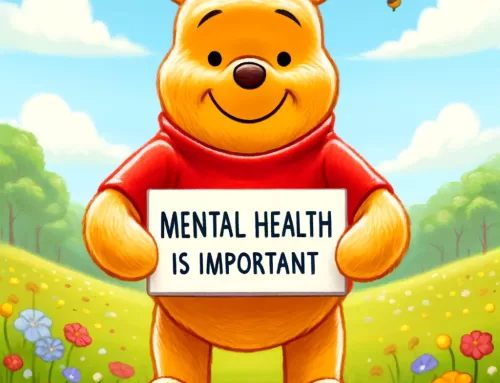Your circumstances and source of unhappiness don’t have to stop you from being happy.
We won’t find complete happiness on this side of heaven, but no matter where each of us is in life, we can all be happier.
Getting happier requires embracing unhappiness in our lives instead of treating it as an obstacle to our happiness. If you believe you need to get rid of feelings of unhappiness to start getting happier, not only will you be unnecessarily held by perfectly normal negative feelings of unhappiness, but also ‘’miss out on understanding what makes you you.’’
The choice of attitude is the last of human freedoms.
In the Second World War, Viktor Frankl, a psychiatrist from Austria, was deported to concentration camps, where he was kept until the end of the war. Of all the family members brought there with him, he was the only survivor, and, suffice to say, he exited the camp with trauma unimaginable to most of us nowadays.
Luckily, Frankl succeeded in turning his pain into a powerful energy and wrote a memoir about his time in the concentration camp whose message that life can be good despite bad circumstances inspired readers worldwide.
We are wired to react to suffering with negative emotions – however, it is up to us to choose how we respond to those emotions. In his words, “Everything can be taken from a man but one thing: the last of the human freedoms—to choose one’s attitude in any given set of circumstances, to choose one’s own way.’’
Say a person who you love abandons you. Naturally, you will feel sadness and anger – the feelings you should not repress. Nevertheless, you can choose whether you will be bitter and, as a result, how quickly you will recover. Or, say you feel afraid because your family member got sick. What you can choose in this case is how you express your fear and how it affects your life.
So, negative emotions, such as fear and anger, are not to blame for your bad attitudes or choices. As a matter of fact, we evolved in such a way that these emotions help us protect ourselves and survive.
Think what you would do if the car ran towards you. You would probably jump out of the way, right? This is because your amygdala received a signal from your brain’s visual cortex that there is a threat to your safety, which translated into fear, which, in turn, caused your kidneys to spit out stress hormones that made your heart pound and move out of the driver’s way.
Count to 10 – Metacognition
Would you characterize yourself as a person who often reacts automatically, without thinking? If yes, social scientists would probably call you ‘’limbic,’’ and this is because our emotions originate in the limbic system within our brains. Once they emerge, the prefrontal cortex – the so-called conscious part of your brain – helps you decide how you respond to them. This process – of experiencing what you feel consciously and refusing to be controlled by it – goes by the name of metacognition.
Although you were not aware of it, you probably were metacognitive on many occasions – for instance, if you counted to ten before saying anything when you were angry. Whoever came up with this technique knew that our prefrontal cortex needs time to catch up with our limbic system so it can decide how to react. In fact, psychologists say that solely counting cannot always help you, but also imagining the consequences of your lashing out while doing so.
Metacognition doesn’t mean you can avoid negative feelings. Rather, it means you can understand them, learn from them, and make sure they don’t lead to detrimental actions, which is principally how they become a source of misery in your life.
Next time you feel miserable about the circumstances you cannot change, try changing your reactions to them.
Remember the comforting truth that, Changing how you experience your negative emotions can be much easier than changing your physical reality, even if it seems unnatural.
First, consider the emotions that your circumstances are causing and observe them as if they are someone else’s. Write them down to make sure they are conscious.
Finally, consider your possible reactions based on the preferable outcomes rather than the emotions you listed.
The Big 5
As we have previously learned, happiness consists of enjoyment, satisfaction, and purpose, and building it means growing in all three of these areas.
This is easier to say than to do, mostly because we spend a lot of time pursuing money, power, pleasure, and prestige, things that divert us from enjoying, finding purpose, or being satisfied.
Now, you might ask yourself why people tend to pursue these when they make them unhappy. For the same reason we usually engage in self-destructive behavior – to distract ourselves from negative feelings and experiences.
Once you learn to manage your emotions, such distractions won’t longer be attractive. Instead, you will have the energy to focus on what matters to build the happiest life you can:
- Faith
- Health
- Family
- Friends
- Purpose
Although they lead to a happier life, the areas are full of challenges.
Take family as an example. One of the most common challenges that arises in this area is conflicts, which are usually a result of ‘’misalignment between how family members view their relationships and the roles that they each play.’’ When this happens, it is crucial to acknowledge the conflict, not run away from it. Remember, disagreements exist in every family, and we can regard them as opportunities to make things better. And how can you do this? First, by not trying to read others’ minds, but actively listen to what your family member has to say. Second, to resolve the conflict in a healthy way, you should live your life without asking someone to change their values. And finally, ‘’don’t treat your family like emotional ATMs.’’ That is to say, don’t expect them to be bottomless sources of help and wisdom, but treat them the way you treat your friends with generosity and by being grateful for their emotional support.
If you want to be happier, begin by changing your beliefs about what it takes to live a life with purpose, enjoyment, and satisfaction. Then, start learning from your emotions and try to discover why they might stand in the way of reaching your goals and building strong connections with the people you care for.
Apart from changing your mindset, learning to manage your emotions, and enhancing your relationships, the journey to building the life you desire would not be possible without proper guidance and encouragement.
In his memoir ‘’Man’s Search for Meaning,’’ Viktor Frankl wrote, ‘’ The way in which a man accepts his fate and all the suffering it entails, the way in which he takes up his cross, gives him ample opportunity—even under the most difficult circumstances—to add a deeper meaning to his life.”




